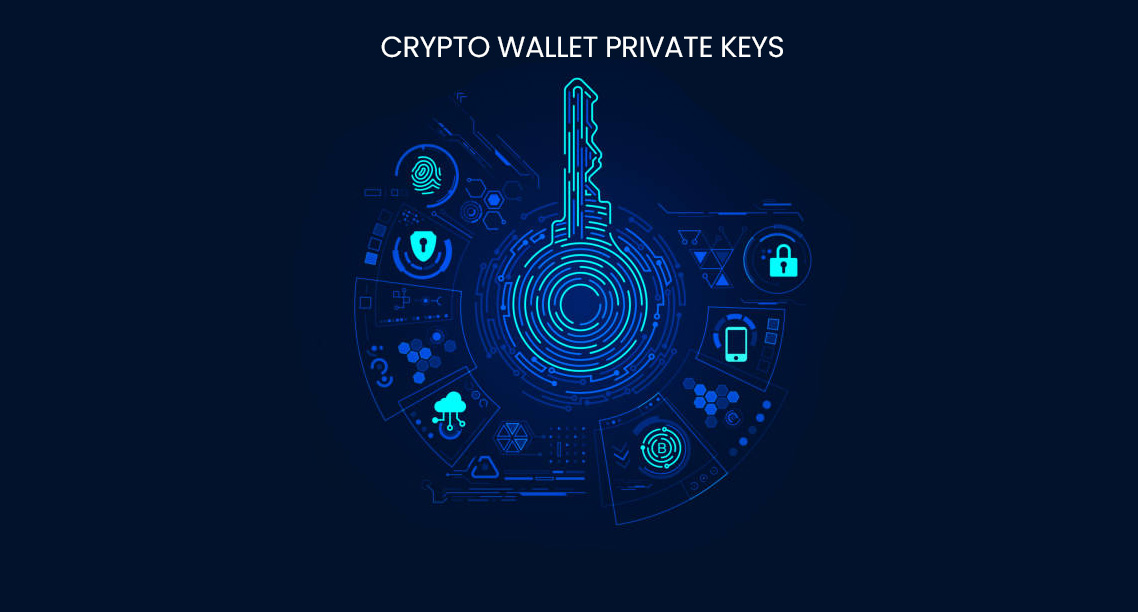Intro
A pivotal aspect of crypto security involves the secure storage of private keys, which serve as the gatekeepers to one’s crypto holdings. Losing these keys can lead to irreversible financial losses. This article delves into the significance of private keys, the associated risks, and various secure methods for backing up these crucial elements.
Table of Contents
Understanding Private Keys
In the cryptocurrency domain, every digital wallet relies on cryptographic keys as a foundational component. Private keys, unique to each user, play a central role in securing assets. Similar to a password, the private key grants access to funds, while the public key functions as the wallet address for seamless transactions. Private keys, generated through complex algorithms, are essential for ownership in the digital asset landscape.
Unlike traditional banking systems, where misplaced credentials can often be recovered, a lost private key in the cryptocurrency space is irretrievable. Therefore, safeguarding private keys is paramount, given their direct link to ownership.
Read also: 5 Best Crypto Exchanges for All Coin Transactions and Why Choose Them
Private Key Operations
- Key Generation: Cryptocurrency wallets generate a pair of cryptographic keys – a private key kept confidential and a public key available to all for fund reception.
- Ownership and Security: The private key, acting as a digital signature, must be kept confidential to maintain ownership. Private keys can be stored in various formats, including encrypted digital files, paper wallets, and hardware wallets.
- Transactions: Private keys are used to sign transactions, validated by the network through the corresponding public key, facilitating secure and legitimate money transfers.
- Access and Control: Possession of the private key grants individuals access to and control over their funds. Protecting the private key from disclosure is crucial, as there is typically no recourse for recovering linked funds if the key is lost or compromised.
Risks of Losing Access to Private Keys
Losing access to private keys poses significant risks in terms of financial loss, legal consequences, and compromised internet security. Secure transactions and identity confirmation hinge on private key usage. Loss of private keys can lead to financial hardships, potential legal issues, and increased vulnerability to identity theft, unauthorized data access, or financial fraud.
Real-world examples, such as James Howells and Stefan Thomas, underscore the severe risks associated with losing private key access. Their situations, involving lost or forgotten keys, resulted in substantial financial losses and the inability to access valuable cryptocurrency holdings.
Methods for Backing Up Private Keys
Several methods exist for backing up private keys, each with its advantages and considerations:
- Paper Wallets: Tangible documents containing public addresses and private keys. Offline creation provides higher security but poses challenges for regular transactions.
- Hardware Wallets: Physical devices designed for secure offline key storage, resistant to malware. While durable, they are susceptible to damage or loss.
- Encrypted Digital Files: Private keys stored on external devices, offering convenience and security through encryption. However, digital theft and data corruption are potential risks.
- Encrypted Cloud Storage: Securely storing private keys in the cloud, accessible with a strong passphrase. Concerns include reliance on the cloud service’s security and potential data breaches.
- Mnemonic Phrases: User-friendly word sequences aiding wallet recovery, created from an algorithm and the private key. Properly secured, these phrases can regenerate private keys if needed.
Recovering a Wallet Using Backed-Up Private Keys
A step-by-step guide outlines the process of recovering a crypto wallet using backed-up private keys. Key steps involve gathering necessary items, installing wallet software, accessing the wallet, verifying security, performing backups, and implementing additional security measures.
Recovering a Wallet Using a Backed-Up Recovery Phrase:
This process involves launching wallet software, selecting the recovery option, entering the seed phrase, waiting for synchronization, and confirming access to the recovered wallet.
Consistency in Private Keys During Recovery
In standard recovery processes, the private key associated with a wallet address usually remains unchanged. Recovery aims to regain access to the same wallet using the same private keys associated with the initial setup. Specific wallet software or service nuances may exist, so users must follow provider instructions for accurate recovery.
Common Mistakes to Avoid
Caution is crucial during wallet recovery to prevent common pitfalls. Typing private keys incorrectly, disclosing recovery phrases or private keys, falling for phishing scams, neglecting antivirus updates, and failing to back up new private keys can all result in the potential loss of cryptocurrency funds.
In the dynamic and evolving landscape of cryptocurrencies, securing private keys is a foundational element for protecting digital assets from irreversible losses and potential security breaches.













